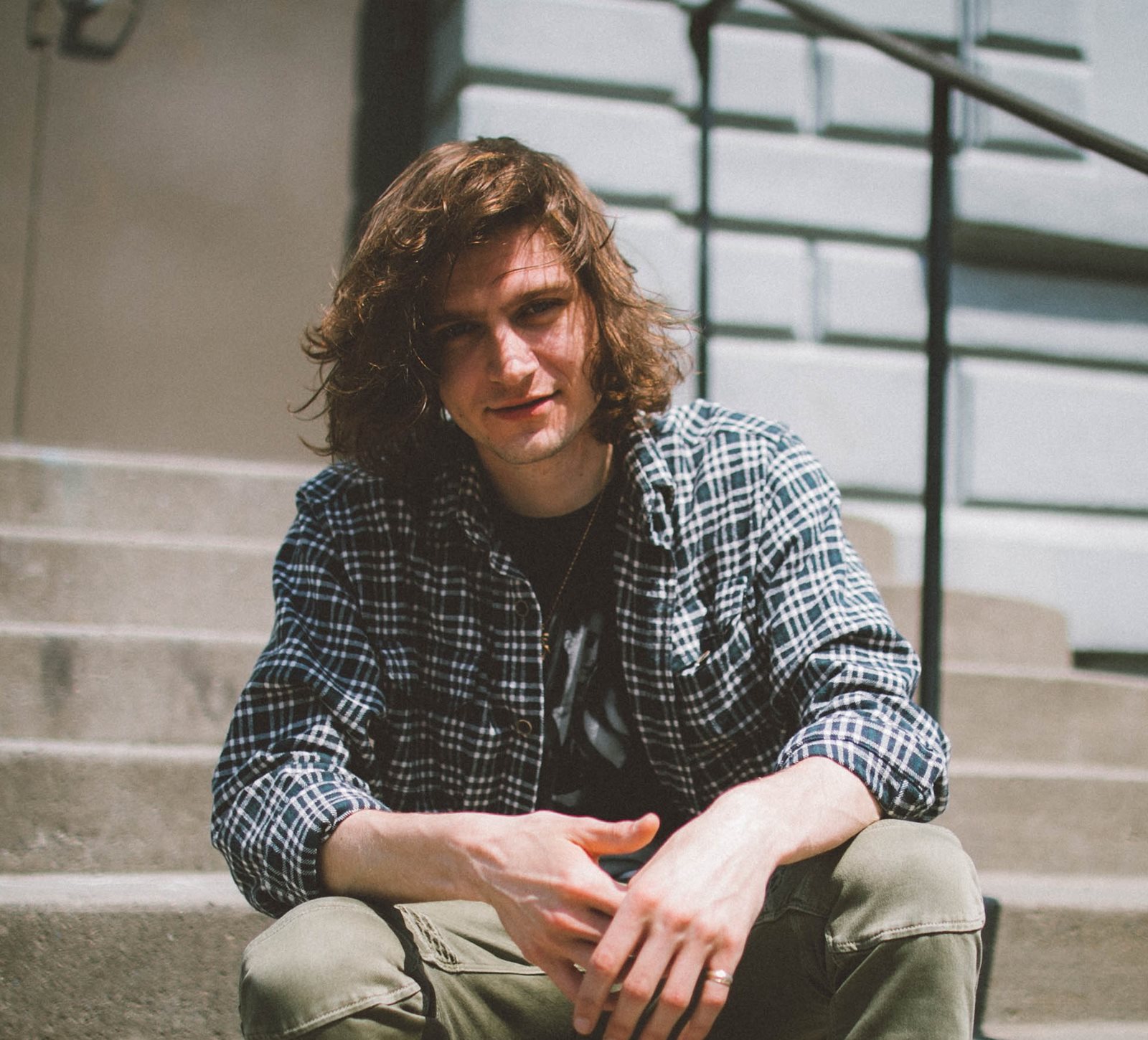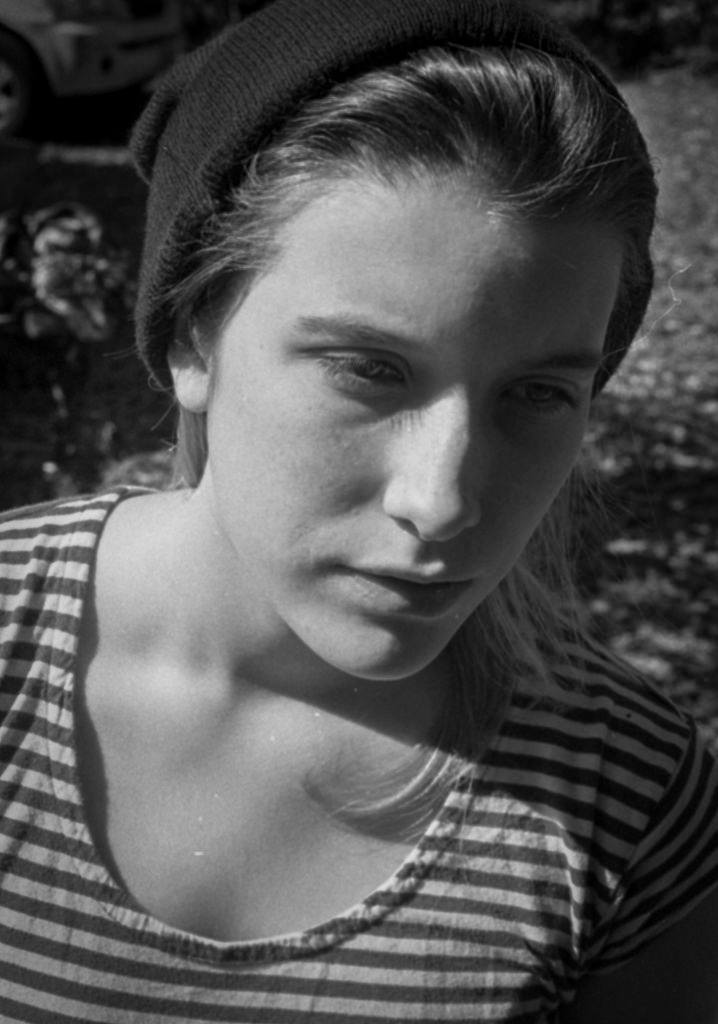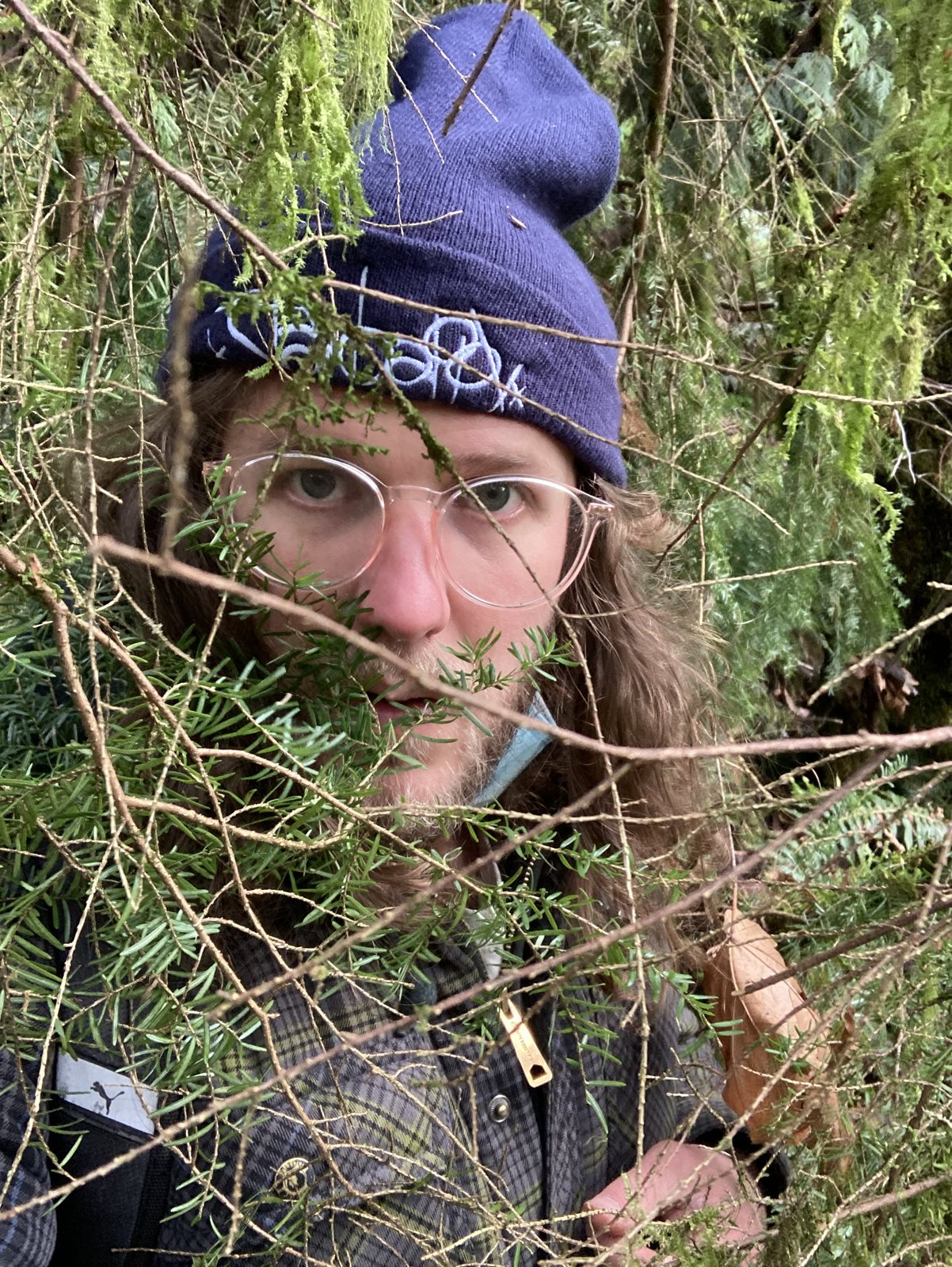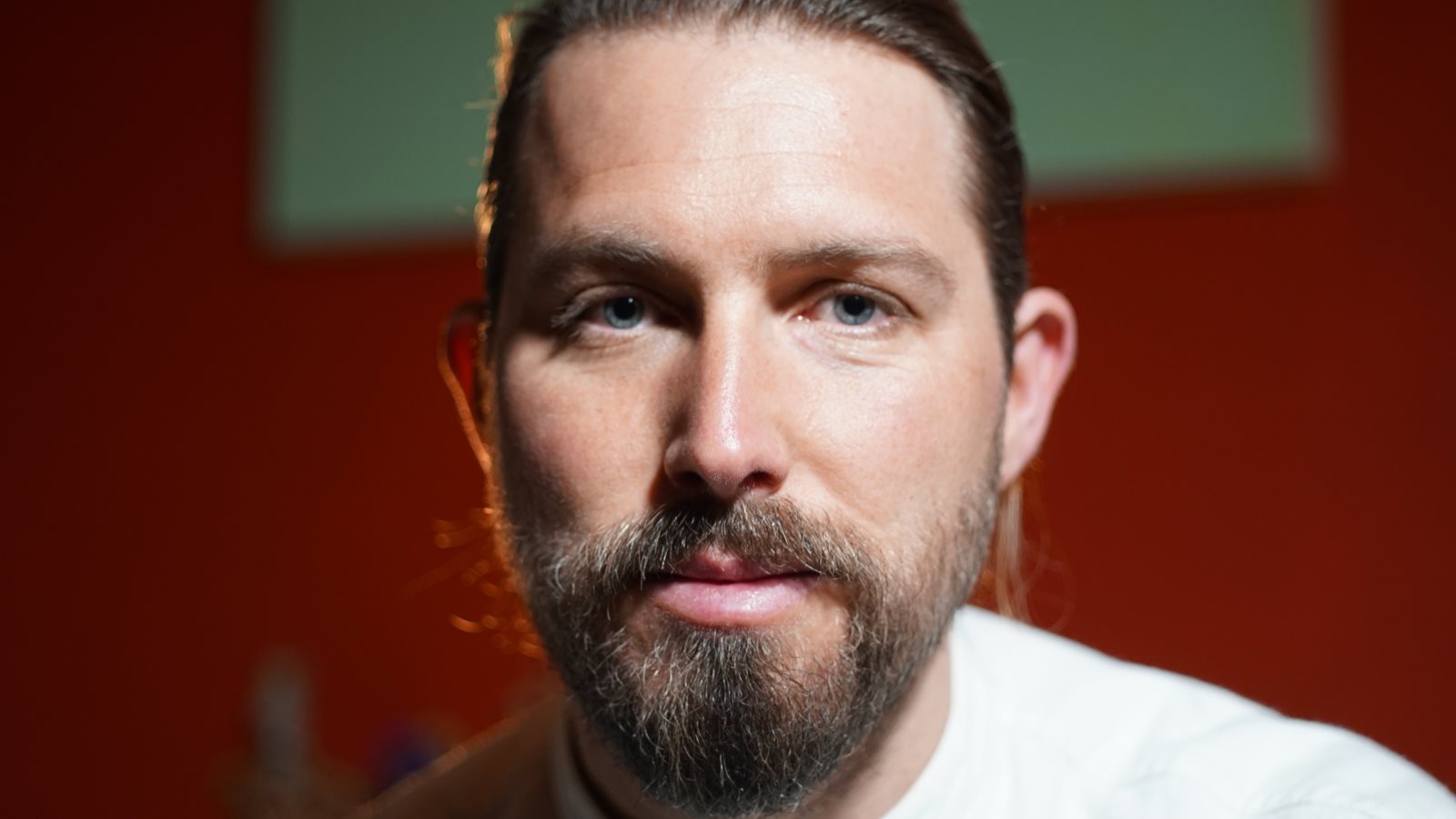Coastal Poets Film Festival: Navigating creative practice within a pandemic
By Corbin Louis (’17)

One year into the throes of a pandemic and I missed live poetry readings. Severely. There was a sense of estrangement from Seattle’s caring literary community. Plus, I felt that undying hunger to express and connect with others through the power of metaphor. These were some of the reasons why I curated the Coastal Poets Film Festival. This event was livestreamed on YouTube with pre-recorded video poems by five genre-bending writers, including Allison Morton, Simon Wolf, Brent Cox, Shelby Handler and myself. The film festival premiered to a live audience of over 80 people. But unlike a Zoom or live reading, video editing allowed the poets to deliver a digitally layered experience of music, effects and linguistic precision.
The five featured works are not just poems, they’re little movies—color graded, scored and glowing with the honesty of five lifelong poets. Four of whom are UW Bothell MFA in Creative Writing & Poetics alumni, and all of whom are dear friends, making art I believe to be infinitely sincere and pulsating. I called upon these poets to formally present their work in the film festival because even in a global catastrophe, these artists know how to unify community in the name of care and critical thinking.
On May 19th, when the 30-minute film festival premiered, I think unity and care were achieved. Eighty viewers is the digital equivalent to a packed room. Like a sold-out coffee shop booming with laughter and snaps. Dozens of people chimed in on the YouTube live chat with praise and awe. I saw best friends from across the country, gathered online, to honor language and the loving hearts that propel it forward. I could not be prouder to have helped spark this collaboration of curious minds and flickering mp4s.
As an artist during my twenties I didn’t realize you could curate events without institutional permission. I thought you needed an expensive manager to book a venue. That’s not the case. Whether you’re playing punk in a basement or producing a film festival from an iPhone, DIY art is possible and empowering. It took me decades to realize this, that despite a global crisis or lack of funds, friends can band together and simply decide to make an epic show happen. So, thank you to the poets, friends and dozen other creatives that made this production explode into life. The film festival was so glorious and well received that I wanted to interview a few of the poets to hear more about how they’ve navigated their creative practice and lives within a pandemic. Below are their razor-sharp insights.
Corbin Louis
What drives you to make new work and share it with the world in a formal context like we’ve done with Coastal Poets Film Festival?
Allison Morton
I couldn't tell you why I'm driven to make new work besides the fact that I am, and making art is one of the best senses of satisfaction a person can have. I think it's a basic human instinct to make, whether we qualify these things as 'art' or not. I wouldn't say that I am naturally driven to share, but the sense of community and friendship that is fostered through sharing art together is worth the discomfort of presenting my work in a formal context to an audience.

Simon Wolf
Language means that there is another person there. By writing I am acknowledging the other. To share the work is to continue the cycle of the work. This particular work was all works in progress so the drive to share it was the event. In the process of sharing I am able to gain a new perspective of my work. Seeing my work presented to the public creates an internal feedback loop. I suddenly see my words not just from my perspective but fully aware that now others, strangers, are hearing them. I mean to say that I am made aware of the flexibility of the words. It forces me to ask if what I chose to share actually worked in communicating the feeling, thoughts and questions I want to leave the viewer with. These questions are centered around asking them to each think about their relationship to their home. And in this their relationship with urban space and to show that these spaces have no clear-cut boundaries, no beginning and end, but instead are completely entangled.

Brent Cox
Not making work is not an option for me. I do it because I don't know anything else, and because I believe in poetry and art's essential role in social formation, especially the power it holds to reform our ideas about what is given and necessary, in other words, to test and redescribe the limits of the possible in an attempt to make the impossible real. Truth be told, I have a lot of ambivalence and phobias about making work public. Something that drives me to share it is the enthusiasm of others, like Corbin, for curating, for giving attention to the work, for believing in it, and for helping to manifest occasions for it to live by materializing out of thin air heterological spacetimes of value.

CL
Creating art videos and poems is often not enough in itself to make a livable wage. How have you survived as an artist while protecting your time to create?
AM
I've worked a variety of jobs in my adult life, from retail, fast food, dog handling, videography and video editing both as a freelancer and in a full-time office setting. Most recently I've taken on a position as a Framing Manager for an independent artist who sells prints online. As an artist, it's so hard to reconcile the conflicts of work, art, value, time and capitalism. One of the most important lessons I'm consistently learning is to separate my value as a human and artist from my value as a commodity under capitalism. It's a hard journey to find something that you feel you can do ethically and also make time to create, and I feel lucky that I have frequently managed to do that in my career, including where I am now.
SW
I have worked in restaurants since I was 16, so around 15 years. It is a job that allows me flexibility in my schedule and most importantly enough money to pay the bills while only having to work three or four days. I started as a busboy in Belltown at a place called Branzino, which isn't there anymore, and most recently was working at Mio Posto Mt. Baker. With the pandemic closing restaurants, I was furloughed and received unemployment for a while before starting work in land restoration, in which the pay is alright but allows me to increase my knowledge of the native and invasive species of Seattle while spending my working days outside within the green ways along 1-5 and on South Beacon Hill. I have never made any money from poetry, and I guess I can't really ever expect to. My goal now is to pivot into a more sustainable career because both restaurants and land restoration jobs are not what I would like to be doing for the long future as they both take a toll on the body. I am working to be able to teach.
BC
Working retail, waiting tables, serving wine, serving corn dogs, serving breadsticks, assisting artists, mercenary courier services, art camp counseling, handing out fake books for rich idiots, cleaning up parties, steaming linens, delivering pizzas, writing standard operating procedures manuals, editing, editing videos, making animations for academics, tutoring, acquiring fake monopoly money to weigh the soul (loans, debt), spending nothing, and then spending less, managing (often poorly) the mental and physical toll of insisting on making time for something the world does not value, finding others that do this, and support it, listening to them, reading them, valuing them. After many years of this kind of thing, I am lucky to be in a PhD program at University at Buffalo studying poetics, and eking out a living on an essentially non-livable stipend, while teaching writing and literature. This is the result of unrepayable generosity from so many people, but this event in particular makes me think especially of those during my time at Bothell that encouraged me despite myself: Amanda Hurtado, Amaranth Borsuk, Sarah Dowling, Ted Hiebert, Jeanne Heuving, Renee Gladman, Rae Armantrout, Beth Secor, and of course, Corbin Louis.
CL
With the pandemic creating a more remote and technology dependent culture, what role does video now play in your artistic practice?
AM
As a millennial, I've been online since middle school, so it comes naturally to me to share work in this way.
SW
This is the first video work I have done directly related to my poems. It is not a form that comes naturally to me but it is a form that I am becoming more and more interested with. Inherently in video is something similar to writing. In a poem I create a frame to look at the world through and in the video the camera choses a frame of what to show. Video also speaks to the entanglement of observer, actor, witness, creator, and shaper. In my work I am interested in how to let go of my preconceived notions of what I know in an attempt to enter more deeply and genuinely into the land and urban scapes that I live with. The camera, in some ways, allows me to re-arrange images to create a frame for my poems that more closely shows how I feel my mind works. In my mind I hold so much. Images of strangers on the street, places I have been, memory as well as fears, hopes and dreams. With video I am able to layer and entangle these visuals in a way that I feel is analogous to how I work through ideas and exist in each day. Moving forward, the question I am asking myself is how much do I want to give to this medium, how much do I want to go down the path of figuring out my specific way of showing my work online and with zoom and video meetings. To decide this, I am asking myself how can this process inform my work, that is how can it benefit my work to push me in new personal processes and realizations?
BC
Video has always been an important part of my practice. I think I have yet to really understand how this pandemic event will affect my relationship to video, because it certainly has, insofar as the world has become mediated so thoroughly by this new kind of video: the perpetual live stream. On the one hand, it has offered the possibility of an event like this, and many of us are grateful for the wonderful way we've been able to experience art and culture in this mediated environment. On the other hand, as a teacher, at least in my anecdotal experience, it has been a devastating blow to the educational environment, and will continue to authorize the deeply unsettling erosion of the university into a neoliberal corporation. I also question the subtending effects of this access. It is a truly remarkable thing that despite a global pandemic, our priority seems to have been the maintenance, to the extent possible, of a radically violent status quo, at least in terms of the economy — not to discount in any way the heartening and inciting power of anti-racist organization, which should be unequivocally celebrated. But I worry about the idea of our social bonds relying so heavily on globalized telecommunication infrastructures that themselves are dependent on the degradation of the environment and the social, material, physical dehumanization and exploitation of an underclass of workers, as well as what appears to be this infrastructure's disposition to centralize wealth and power among a radically callous caste of autocratic oligarchs. Video is absolutely implicated in this. Recently, I've been wondering if it might be necessary to shift my praxis toward more intimate, local encounters.
CL
What is gained by presenting poetry as remote video opposed to an in-person reading. What might be lost?
AM
Film was always my first passion, so it blended naturally into my poetic process. For me, video can enhance a poem and create specificity in a way that words can't. The ambiguity of words and specificity of image play together really well in video poetry.
SW
Things that are gained: the ability for people from all around the world and country to be watching it at the same time. A poetry reading creates a in human community that is based solely on those that are able to show up and this is hugely decided by location so that an in person reading fosters a localized and somewhat insular community. The online reading opens this up while, unfortunately, taking away the chance for the people who come to meet each other. How many lovers met at an open mic at Allegro? And how would it be possible to meet a lover on YouTube where everyone is just a name on a list of attendees. I think overall being online makes it easier for people to show up. But it makes it only about the work that is being shared and takes out the important layer of writing which is the community and the conversations that the work causes. Being online shifts the meaning of the event.
BC
I've been long working on the idea of what I call "Video Poetic Criticism," video readings of poetry and art that use the affordances of a variety of video editing and animation software to try and read and present poems in new and interesting ways. This is not so far off from what could be classified as "video essay." That video can carry image, sound, language, music, and voice across great distances is a marvel, and I've always been mesmerized by visions, ideas, and artworks being accessible through the projection of light on a screen or the inciting of pixels. I think there are a host of ways reading poems like this can encourage new engagements with them. So being able to share work like this from a distance is essential to its material identity and aesthetic possibility and, most optimistically, the opening of more spaces of encounters with alterity. I've read works this way by Susan Howe, Johanna Drucker, Fred Moten, Robert Duncan, and others. In a hopeful sense, remote viewing might offer a productive asynchronous time, a potential diachronicity, to counteract what Bernard Stiegler has referred to as the synchronicity, a kind of monochrome time, of mass-media spectacle, that has the tendency of manufacturing art primarily at the behest of the barbarous maximization of profit at the expense of all beings and Being. I wonder, and hope, that this diffuse network can come to encourage and promote the difference and opacity (to think of Édouard Glissant) of experience against the staid "same experience" profit-based hegemonic cultures inherently promote.
